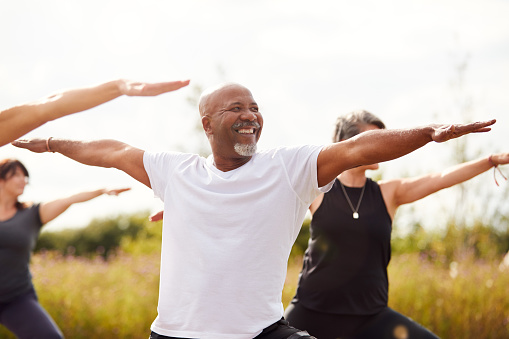
Quality sleep is fast becoming but a luxury for many. What if we told you that almost 70 million Americans experience a sleep disorder? Indeed, insomnia remains the most notorious sleep disorder, with about 30 percent of American adults having short-term insomnia.
Not the best news you want to hear, but worse, insomnia can take a toll on you both physically, and mentally. In some extreme cases, insomnia can severely deteriorate your daytime life quality, which could trigger unfortunate incidences either from poor judgment, or accidents.
Frightening maybe?
Well, the good news is that exercise can improve the quality of your sleep. Studies have shown that specific exercises can slash the time you stay up at night, reducing the interval it takes you to fall asleep. These exercises trigger the relaxation response, which suppresses a heightened sense of awareness thanks to a rush of calming hormones that wane your nervous sensitivity.
Such exercises also stabilize your demeanor, resulting in a mental decompression process that naturally transitions the individual to a state of rest. With the right exercise regimen, you can significantly reduce the symptoms associated with insomnia like depression, heightened arousal and anxiety.
For some individuals, their insomnia is triggered by their circadian rhythms, commonly seen as the internal body clock. The standard circadian clock is regulated naturally by the cycle of light and dark. This spans the typical 24 hours of a day. Therefore, people with circadian rhythm disorders would suffer from sleep malfunctions like chronic insomnia and over-early waking. It is exciting to learn that good exercise can healthily...
reset your cardiac rhythm, relieving you of such insomnia.
Having exalted the benefits of exercise (relating to insomnia), you should be rightly curious about the types of exercises that can restore your enjoyable sleep.
Aerobics gets the job done
Aerobic exercises are effective in enhancing your sleep—so long as they are performed moderately. By enhancing your cardiovascular efficiency while improving the breathing efficiency and blood circulation to your muscles, aerobic exercises improve your sleep quality.
Precisely, moderate aerobics improve your slow-wave sleep. This is a state of deep sleep wherein your body and brain are revitalized. This is the type of sleep you wake from feeling refreshed. Aerobic exercises like moderate running, swimming, cycling or walking can greatly relieve your insomnia symptoms. As we’ve already stated, aerobics works best (in this regard) when it is moderate in intensity.
You shouldn’t be doing more than 150 minutes of moderate aerobic workouts weekly. This translates to 10 minutes daily of medium-intensity exercises.
Resistance training helps you sleep better
We are not necessarily asking you to aspire to become a ripped Dwayne “The Rock” Johnson, but integrating resistance training into your workout additionally enhances your sleep quality. More than building muscles, strength training improves your blood pressure regulation, improving glucose metabolism, and ultimately reducing stress and helping you sleep better. Research has established a strong connection between quality sleep and muscle growth.
A 20 to 30-minute resistance training regimen can notably boost your chances of enjoying sustainable deep sleep. You can go with ready strength training workouts like...
bicep curls, lunges, push-ups, tricep dips, calf raises and squats.
Yoga alleviates insomnia
Oh, and were you thinking yoga was strictly for that Indian monk? Specific yoga exercises improve your sleep quality. An insightful national survey from the National Institutes of Health revealed that 55 percent of the participants who did yoga experienced improved sleep quality. This is not unconnected with the proven capacity of yoga to reduce stress and help you calm down.
Yoga exercises help you breathe better, improving your muscle health and consequently reducing the time it takes you to fall asleep. Three-to-five minutes of yoga exercises daily, like Wide-Knee Child’s Pose, Reclining Bound Angle, Corpse Pose and Legs on a Chair Pose can help you sleep better.
Having established the efficacy of exercises in relieving insomnia, it is vital to steer clear of rigorous workouts within 60 minutes of your bedtime. This could have adverse effects on your sleep like heightened adrenaline, elevated heart rate and higher body temperature.








